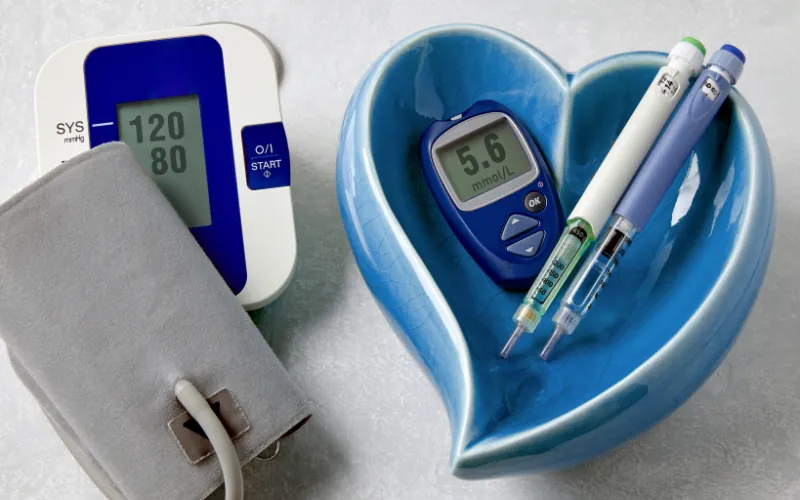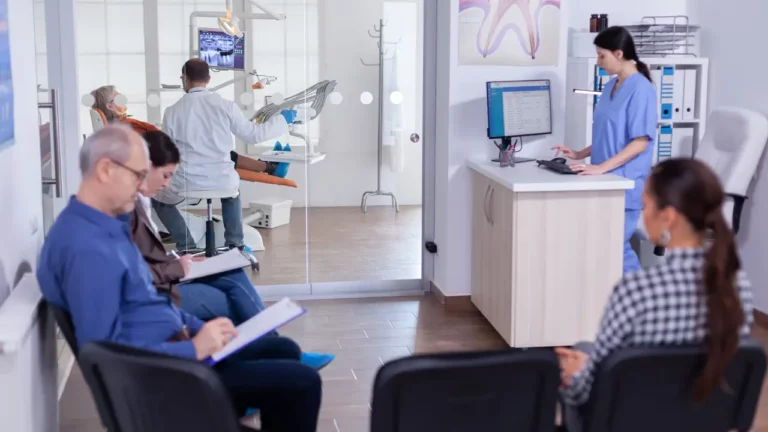Advanced heart failure treatment encompasses a range of interventions aimed at managing symptoms, improving quality of life, and extending survival in individuals with severe heart failure that is resistant to standard therapies. By leveraging Remote Patient Monitoring (RPM), patients, and healthcare providers can proactively monitor vital signs, track medication adherence, and detect early warning signs, empowering individuals to take control of their health.
This article delves into the complexities of advanced heart failure and explores the innovative treatment options available when traditional approaches fall short. From cutting-edge medications to surgical interventions and advanced therapies like LVADs and heart transplantation, we navigate the landscape of advanced treatments, offering insights and hope to those facing this challenging condition.

What is Heart Failure Treatment?
Standard care for heart failure typically involves medications, lifestyle changes, and symptom management. However, for some individuals, these measures may not be sufficient to adequately control their condition or improve their quality of life. This is where advanced treatment options become crucial.
When standard care falls short, advanced treatments offer new avenues for managing heart failure more effectively. These interventions range from innovative medications to complex surgical procedures and cutting-edge therapies like ventricular assist devices (VADs) or heart transplantation. Embracing these advanced approaches can significantly enhance outcomes, alleviate symptoms, and even extend life expectancy for individuals with advanced heart failure.
What is Heart Failure
Advanced heart failure represents a stage where traditional therapies no longer provide sufficient relief or management. It’s essential to understand the progression of heart failure to appreciate when it reaches an advanced stage. Heart failure typically advances through stages ranging from mild to severe, with advanced heart failure occurring in the latter stages.
Stages of Heart Failure
- Stage A: Individuals at risk of heart failure due to underlying conditions but without structural heart damage or symptoms.
- Stage B: Patients with structural heart changes but no symptoms of heart failure.
- Stage C: Those with structural heart changes and current or prior symptoms of heart failure.
- Stage D (Advanced Heart Failure): Individuals with severe symptoms despite optimal medical therapy, often experience limitations in physical activity and recurrent hospitalizations despite treatment.
Symptoms and Challenges of Advanced Heart Failure
Advanced heart failure presents unique challenges and symptoms that significantly impact patients’ daily lives. These symptoms may include:
- Severe Shortness of Breath: Even minimal exertion can lead to extreme breathlessness, affecting mobility and independence.
- Chronic Fatigue: Persistent tiredness and weakness, making routine activities challenging and exhausting.
- Fluid Retention: Swelling in the legs, ankles, or abdomen due to fluid buildup, leading to discomfort and increased risk of complications like infections.
- Reduced Exercise Tolerance: Inability to engage in physical activities due to diminished cardiac function, limiting participation in enjoyable activities and social interactions.
- Frequent Hospitalizations: Advanced heart failure often necessitates frequent hospital visits due to symptom exacerbations, further disrupting normal life and imposing emotional strain.
Understanding these symptoms and challenges is crucial for both patients and healthcare providers to recognize when standard care is no longer adequate and to consider advanced treatment options for better management and improved quality of life.
Available Treatment Options
Medications Beyond Standard Care
- Inotropic Agents: These medications strengthen the heart’s contractions, improving its pumping ability. They are often used in advanced heart failure to alleviate symptoms like shortness of breath and fatigue.
- Vasodilators: Drugs that widen blood vessels, reducing the heart’s workload and improving blood flow. They can help manage symptoms and prevent disease progression in advanced heart failure patients.
- Experimental Therapies: Ongoing research is investigating novel medications and treatment approaches for advanced heart failure, offering hope for improved outcomes and symptom management.
Surgical Interventions and Procedures
- Cardiac Resynchronization Therapy (CRT): This procedure involves implanting a device that coordinates the contractions of the heart’s ventricles, improving its pumping efficiency and reducing symptoms like shortness of breath and fatigue.
- Implantable Cardioverter-Defibrillators (ICDs): These devices monitor heart rhythm and deliver electric shocks if dangerous arrhythmias occur, reducing the risk of sudden cardiac death in advanced heart failure patients.
- Coronary Artery Bypass Grafting (CABG): Surgery to bypass blocked coronary arteries, restoring blood flow to the heart muscle and relieving symptoms in advanced heart failure patients with significant coronary artery disease.
Advanced Therapies Like LVADs and Heart Transplants
- Left Ventricular Assist Devices (LVADs): These mechanical pumps are implanted in the chest to help the heart pump blood more effectively, offering a lifeline for patients with severe heart failure who are not candidates for heart transplantation.
- Heart Transplantation: For eligible patients with end-stage heart failure, heart transplantation remains the gold standard treatment, offering a chance for long-term survival and improved quality of life.
By exploring these advanced treatment options, individuals with advanced heart failure can find renewed hope and improved outcomes, allowing them to regain control over their lives and enjoy a better quality of life.
Lifestyle Changes and Supportive Care
Importance of Lifestyle Modifications
- Dietary Changes: Adopting a heart-healthy diet low in sodium and saturated fats can help manage fluid retention and reduce strain on the heart.
- Regular Exercise: Engaging in a tailored exercise program under medical supervision can improve cardiovascular function, enhance endurance, and alleviate symptoms of advanced heart failure.
- Smoking Cessation and Alcohol Limitation: Quitting smoking and moderating alcohol intake can reduce the risk of further heart damage and complications.
Psychological and Emotional Support for Patients and Caregivers
- Counseling and Therapy: Mental health support can help patients and caregivers cope with the emotional toll of living with advanced heart failure, offering strategies to manage stress, anxiety, and depression.
- Support Groups: Connecting with others facing similar challenges through support groups or online communities can provide invaluable emotional support, encouragement, and practical advice.
- Education and Empowerment: Providing patients and caregivers with information about advanced heart failure, treatment options, and self-care strategies empowers them to take an active role in managing the condition and making informed decisions about their health.
Addressing the psychosocial aspects of advanced heart failure alongside medical interventions is essential for holistic patient care, promoting emotional well-being, resilience, and improved overall outcomes.

Transforming Heart Failure Management through RPM Advanced Technologies
In our exploration of advanced heart failure treatment, we recognize the pivotal role that innovative technologies play in enhancing patient care and outcomes. One such technology, RPM, offered by DrKumo, revolutionizes the management of advanced heart failure by providing continuous remote monitoring of vital signs and symptoms. With DrKumo’s RPM platform, patients can seamlessly transmit their health data to healthcare providers, enabling proactive intervention and personalized adjustments to treatment plans.
By leveraging RPM technology, individuals facing advanced heart failure can enjoy greater peace of mind, knowing that their health is continuously monitored, and potential complications can be detected early, ultimately leading to improved outcomes and enhanced quality of life. As we navigate the complexities of advanced heart failure treatment, DrKumo’s RPM emerges as a powerful tool in empowering patients and healthcare providers to address the challenges of this condition with confidence and precision.

Frequently Asked Questions
What are the signs that indicate standard heart failure care may not be enough?
Signs include persistent symptoms like severe shortness of breath, chronic fatigue, and recurrent hospitalizations despite adhering to standard treatment regimens. These indicators suggest the need for more advanced interventions.
How do advanced therapies like LVADs differ from standard heart failure medications?
While standard medications aim to alleviate symptoms and slow disease progression, advanced therapies like LVADs directly assist the heart’s pumping function or provide a bridge to transplantation in severe cases where standard medications are insufficient.
Can lifestyle modifications alone suffice for managing advanced heart failure?
While lifestyle changes are crucial for overall heart health, they may not be enough to manage advanced heart failure on their own. Advanced treatments like medications, surgeries, or devices may also be necessary for effective symptom management and improved outcomes.
How does RPM complement advanced heart failure treatment?
RPM allows for continuous monitoring of vital signs and symptoms remotely, facilitating early detection of complications or worsening symptoms. This proactive approach enables healthcare providers to intervene promptly, preventing exacerbations and improving overall care.
What role do caregivers play in advanced heart failure management?
Caregivers provide invaluable emotional and practical support to individuals facing advanced heart failure, aiding in medication adherence, symptom management, and communication with healthcare providers. Their involvement is essential for optimizing patient outcomes and quality of life.
Takeaways
In navigating the complexities of advanced heart failure, it becomes evident that standard care may not always suffice to address the diverse needs and challenges faced by patients. However, the landscape of treatment options is continually evolving, offering new avenues for improved symptom management, enhanced quality of life, and prolonged survival.
As we embrace the promise of advanced heart failure treatment options and the transformative potential of RPM technology, we embark on a journey of hope, innovation, and improved quality of life for individuals living with this challenging condition. By leveraging the synergies of advanced therapies, comprehensive care coordination, and patient-centered approaches supported by RPM, we can enhance the well-being, resilience, and longevity of individuals facing advanced heart failure.
To explore how RPM can revolutionize your approach to managing advanced heart failure, contact us today through DrKumo’s Contact Page. Take the first step towards empowering patients, enhancing care coordination, and achieving better outcomes in advanced heart failure management.








